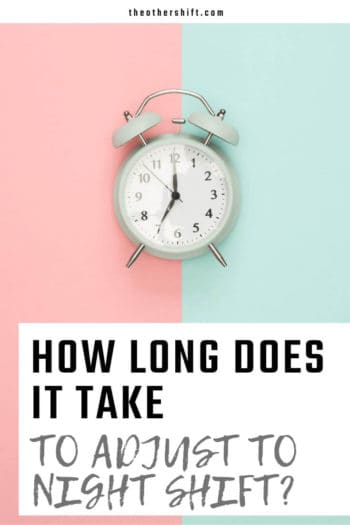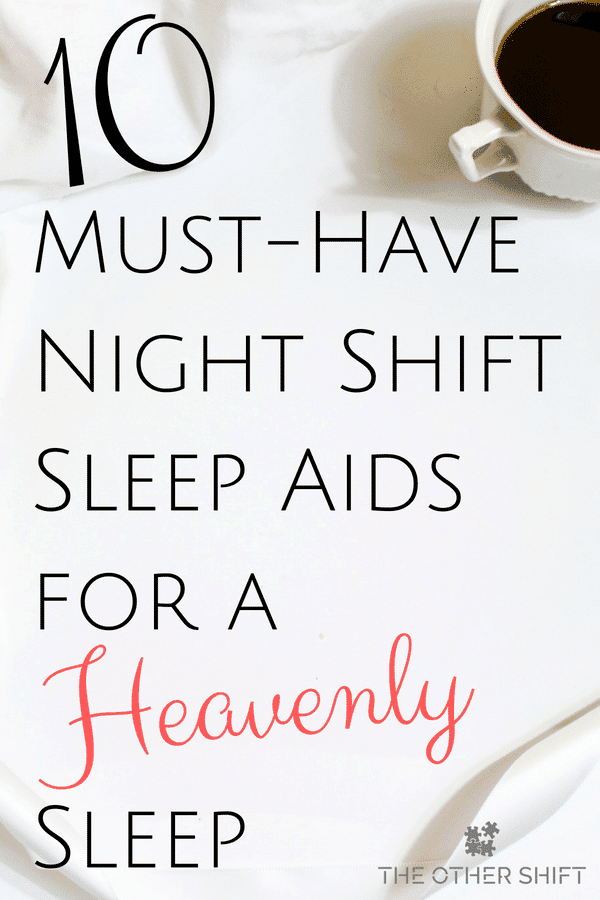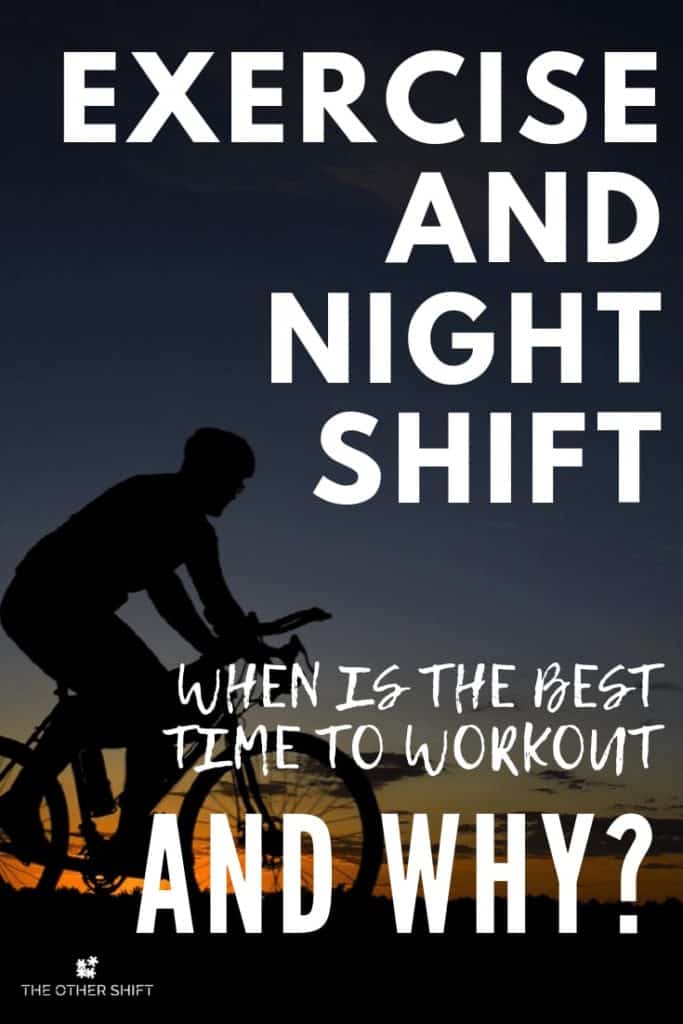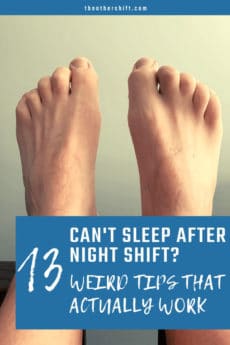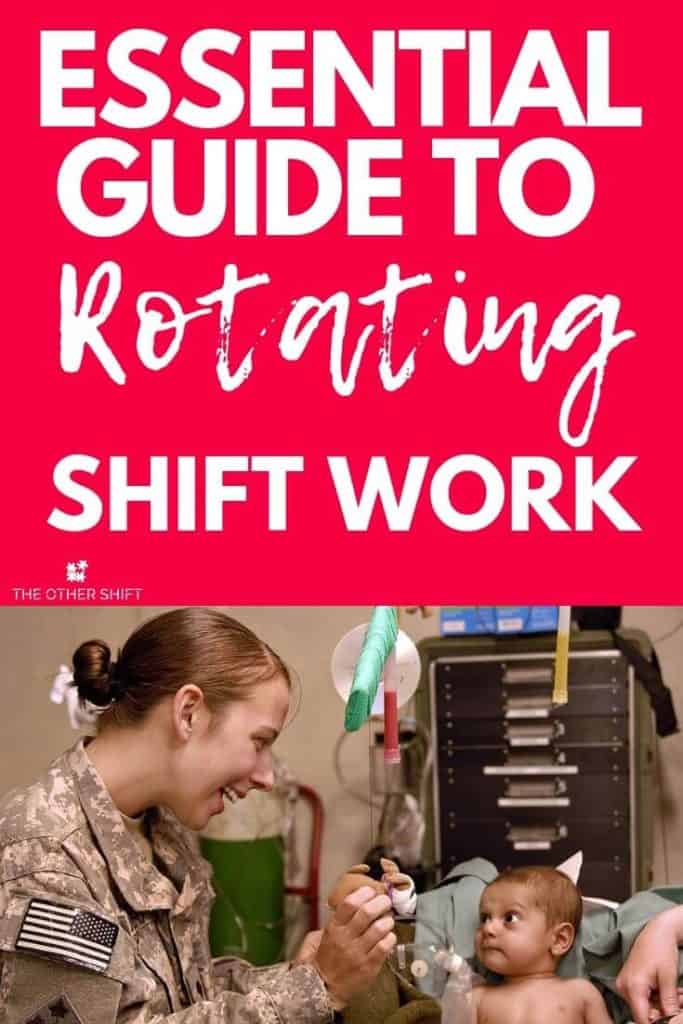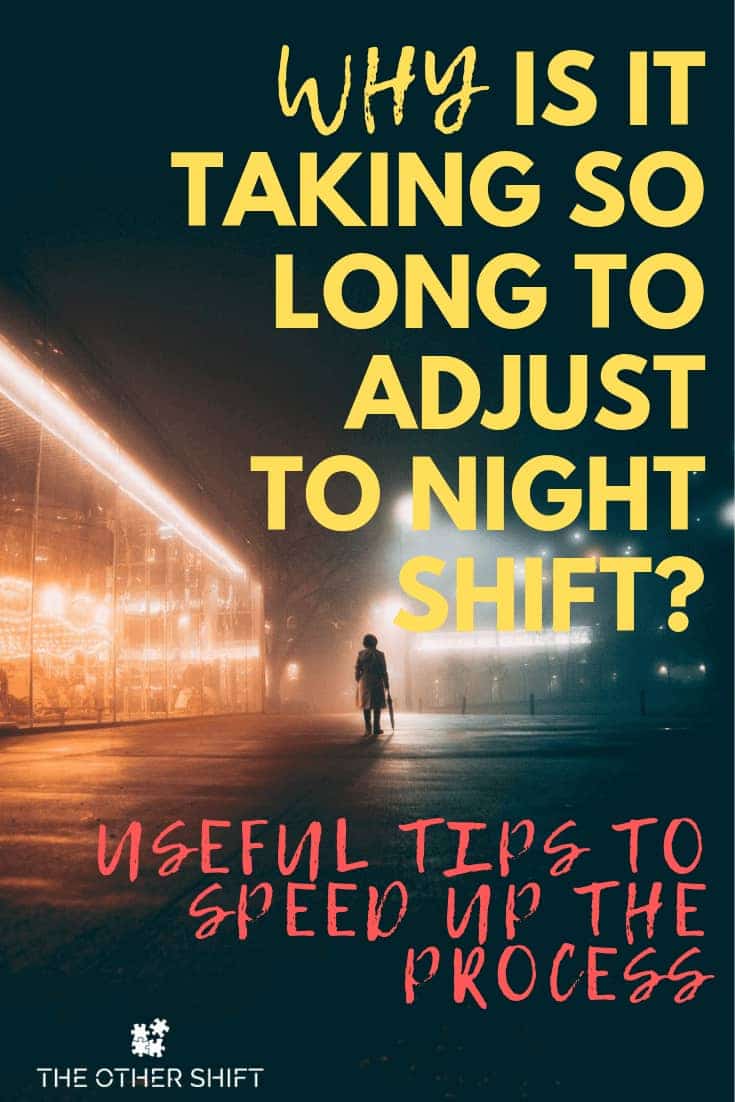Disclosure: This page may contain affiliate links, meaning we receive a commission if you decide to make a purchase through our links, but this is at no additional cost to you. Please read our disclosure and privacy statement for more info.
24 hours, 2 weeks or even a month… how long does it really take to adjust to the night shift? If you’re new to the 3rd shift or you’ve been working these overnight hours for a while, it’s good to know where you’re at and what changes you can make to speed up the transition process.
How long does it take to adjust to night shift? Most 3rd shift workers will start to feel adjusted within 2 days but it can take up to 2-3 weeks. However, despite how you may feel, our bodies never truly “adjust” to the night shift schedule. It’s simply not how our body clock, or circadian rhythm, is designed to function.
Is it taking you longer than a week to adjust? Don’t be discouraged. This post will explore why this could be the case, how to speed up the process and the reasons behind night shift just not working for some people.
How Long Does It Really Take to Adjust to the Night Shift Schedule?
Most people working the night shift, say it takes anywhere between 1 day and 3 weeks to start feeling somewhat “normal.”
However, according to research, despite what people may think and feel (particularly those who work permanent nights) our bodies may never truly “adjust.” (source)
Yes, we may eventually reach a happy place where we sleep okay during the day and feel less zombie-like, but at the end of the day, us humans are simply not wired or programmed to consistently sleep when the sun is shining and be awake when the moon is out.
Unfortunately, we have not evolved into shift work ninjas just yet… But I’m still hoping!
As a night shift worker myself this stuff is hard to stomach. But stay with me as I explain more.
There are lots of things at play when we ask, “how long does it take to adjust to the night shift schedule?” such as:
- Were you able to sleep during the day?
- How well did you prepare for the night shift?
- What is the length of time between each night shift?
- How many night shifts you are working in a row?
- What is your emotional and physical ability to cope with this significant body clock change
These five points are super important when it comes to answering this question, so let’s dive in and see why they matter.
Just remember…
Strategies to cope with or speed up the transition process are situational. What are your personal needs? Your job requirements? What is going on in your home? We are all different and there is no blanket rule or “magic number” for everyone.
1. Were You Able to Sleep During the Day When Working Night Shift?
Do you have a set routine that allows your body to predict what is happening next? Are you giving your poor circadian rhythm the opportunity to match particular behaviors with sleep? Such as:
- Enjoying a hot shower
- Using lavender – (Handcraft Lavender Essential Oil
 on Amazon is really beautiful and comes with a glass dropper)
on Amazon is really beautiful and comes with a glass dropper) - Listening to calming sleep music
- Eating sleep-inducing foods
Or… do all your morning’s post nights look totally different?
Do you sleep as soon as you get home or do you spend 3-4 hours running errands, playing video games or watching TV, limiting the time you actually have to sleep?
Do you eat a small but filling breakfast when you get home to stop you waking with hunger pains or do you enjoy a cold beer to “take the edge off” (as I have done many times…)
The things you do before jumping into bed, while working nights, really matters!
If you’re thinking about your own routine right now and it could be slightly disheveled, start with three simple things:
Prioritize sleep
It seems basic, but sleep must be number 1.
If you need to stop on the way home from a night shift because you feel unsafe to drive, then stop. We have a great post with suggestions on how to drive home safely which go beyond putting down all the windows and turning up the music. Check it out here.
Avoid getting up during the day if you can and aim for 7-9 hours sleep.
I know some people say they only need 5 hours sleep, but according to research, only a very tiny percentage of the population can function fully like this.
These people carry something called the DEC2 gene which allows carriers to only need 4-6 hours sleep. (source)
If you a hand in the sleeping department check out these posts below:
- Sleep medications: Insomnia and Shift Work Sleep Disorder Medication Review
- Night shift tips: 7 Essential Night Shift Tips: Making The Impossible A Reality
Create your cool, quite “cave”
Blackout your bedroom
No, not just with sheets or ripped garbage bags, I’m talking about 100% darkness (or as close as you can get).
Take the time on your days off to do this properly. The sunlight and the heat in your bedroom could be what is keeping you awake. The DEZ Furnishings Cordless Blackout Cellular Shade on Amazon is incredibly effective if you’re looking for a place to start.
on Amazon is incredibly effective if you’re looking for a place to start.
We have also created an entire shift work tools page dedicating to showing you the products we have used, love and recommend without hesitation. You can see them here or by clicking on the image below.

Adjust thermostat
The temperature in your bedroom is huge.
Your body naturally cools when you sleep, so don’t make this job any harder than it needs to be. For adults, we should aim to have our bedrooms between 60 to 72 degrees Fahrenheit (15 to 22 degrees Celsius). (source)
See the fans we recommend here via a post we wrote titled 10 Must-Have Night Shift Sleep Aids For A Heavenly Sleep
Wear blue light blocking glasses
If sitting in a pitch-black room after night shift is not really an option, these glasses allow you to still watch TV, use your device and read with your bedside lamp without your sleep hormones being affected.
We use them every single night (and day if working nights) and cannot recommend them highly enough.
If you don’t know what in the world I am talking about, this is what they look like…


We wear Swanwick Sleep “Swannies” because they block out the highest percentage of blue light coming from your phones, lights and the TV and they actually work.
I highly recommend buying a pair of “Swannies” blue light blocking glasses through the Swanwick Sleep website here.
If you want to know more information, here is a few other posts we wrote:
- What Should I Look For in Blue Light Blocking Glasses?
- How Swanwick’s Blue Light Blocking Glasses Put Me to Sleep
- Do Night Shift Workers Need Blue Light Blocking Glasses?
Did You Know…
Getting high-quality sleep for a minimum of 7 hours can not only improve performance in the office but also at the gym AND within your relationship.
2. How Well You Prepared for the Night Shift
Now sleep plays the biggest part in night shift preparation and therefore how quickly we are able to adjust. However, there are other things you can do to assist in the preparation process also.
- Social arrangements.
Are your family and friends aware of your roster so they don’t disturb your sleep? Have you got anything organized socially to keep you from feeling like you’re missing out? Potentially dinner before work or walk in the afternoon with a friend.
- Napping.
When transitioning to the night shift schedule, did you prioritize time for an afternoon nap before you went into work? Or did you skip it meaning you could have been awake for potentially 24 hours or more? (if you wake at 9am and didn’t sleep until 9am the following day for example)
This sleep is critical. But how long is enough? We cover it here “How Long Should You Sleep Before A Night Shift?” and I recommend you check it out.
- Exercise.
Did you take the time to move, stretch and get your heart rate up in the few days before and even during night shift? This can not only impact your sleep but is also a great stress relief, allowing you to focus and problem solve better. Here are a few posts to overcome the exercise excuses you are probably feeling.
- Sleep Or Workout? What Should I Do After Night Shift?
- 8 Impressive Jump Rope Benefits To Get That Killer Body
- 5 Tips To Solve Your Crazy Shift Work Exercise Excuses
- Sun exposure.
Did you enjoy any time in the sun before and during each night shift? Your body clock uses the sun to dictate it’s roles at particular times of the day like digestion and sleep. Spending time outside allows your body clock to keep track of what it’s supposed to be doing.
- Meal Prep.
Do your work meals keep your energy levels up or do they make you feel lethargic, resulting in you drinking a ton of coffee, energy drinks or energy “substances”? These stimulants can absolutely have a negative effect on sleep quality if consumed too close before bed.
If you’re feeling stuck, here are a few posts to help you prepare your meals:
When Should I Eat On Night Shift?
What Should I Eat After Working Night Shift?
How Can I Lose Weight Working 12-Hour Night Shifts?
Should I Eat On Night Shift? Why Intermittent Fasting Works
3. The Length of Time Between Each Night Shifts
Were you given ample time to sleep and recover between night shifts?
Or, did you work overtime which cut into your sleeping period?
Did you go from your night shift job to your second job during the day to help pay for some emergency expenses?
This stuff matters to your sleep and how quickly you can transition into night shift mode.
In most shift working industries, there are regulations to the length of time granted between each shift, but I know in reality this does not always run true.
How much time does your employer mandate you cannot work between shifts?
If you are not sure, go find the answer. What is the legal amount of time I can actually go back to work after working a 8 ,10 ,12, 24-hour night shift? Look after yourself and your entitlements to make sure you are not being left out to dry.
The smaller the length of time between night shifts, the harder it will be to not only physically sleep for 7-9 hours but also, complete (and enjoy) everything else life throws at you.

4. How Many Night Shifts Are You Working in a Row
If I only work one night shift, then flip back to day shift with minimal chance to sleep, I am a zombie.
However, If I work 3-4 nights in a row, I find my groove pretty quickly and can be adjusted within 2 days maximum.
The number of nights you work plays a big part in how long it takes to either adjust to the night shift or back to the day night.
If you are interested in learning how to transition from day shift to night shift, this post we published titled, “Night Shift to Day Shift – How to Switch Quickly” will be a huge help.
Can you request your night shift roster?
If you can, a clockwise rotation is best. 3 day shifts, 3 evening shifts, 3 night shifts, and 3 recuperative days off is what research recommends, particularly for emergency services. (source)
5. Your Emotional and Physical Ability to Cope With This Significant Body Clock Change
Do you like change or are you a routine kind of person?
If I came and switched your orange juice for apple juice, would you feel like the world is falling down or would you embrace a new flavor and get excited something new?
That may be a little too simplistic where night shift is concerned, but the same mental process can be applied.
If you simply hate night shift and everything about the schedule, you are probably less inclined to exercise between nights, eat healthy foods and make plans to be socially active.
Emotionally, this can have a significant impact on your overall wellbeing.
However, if you take the mindset part out of it, some peoples bodies just don’t mesh well with nights. And that’s what we will talk about next…
Why Some People Never Adjust to the Night Shift Schedule
I have worked with many people who just can’t do it and that’s totally okay.
Here are a few reasons why:
- There is a genetic predisposition to the amount of sleep you physically and mentally need to adjust to a new schedule. If you get anything less, you completely and utterly struggle to function.
- You have a health condition which gets worse when you work the night shift. Therefore, you are never able to truly take the time to adjust before you are forced move to an alternative schedule. Debilitating Eczema and back pain are two conditions I have personally come across that fit this mold.
- Pregnancy. Depending on the stage of pregnancy, you can feel pretty exhausted just simply working shift work during the day let alone nights. Therefore this particular group of ladies find it super tough to adjust to the night shift. Read: Shift Work While Pregnant: Survival Tips From 46 Busy Moms
.…The other reasons revolve around sleep
- Sleep is not a priority.
If you really listen to why fellow workers “can’t do night shift”, they often give you a list of things they did throughout the day, of which sleeping wasn’t one. So, how are you meant to function properly, or at all, if you don’t sleep?
History tells me that these workers often get caught in the moment and chase activities which they prioritize as more important or better fun. This can seem great at the time but you end up paying for it later.
- You suffer from insomnia and have a very hard time sleeping during the day. Plain and simple.
- Lastly, there could be other unresolved stress in life preventing them from sleeping. If we are worried, anxious or worked up about anything, even it happened a long time ago, this can prevent you from sleeping. This, in turn, affects how quickly we adjust to a new schedule. If this sounds like you, it’s time to talk to somebody.
How To Adjust to the Night Shift Quicker
If you’ve been on night shift for a little while now, you’ve probably tried the more “mainstream” sleeping aids like wearing an eye mask and inserting earplugs, right? If not, we will explore them in the next section.
But first I wanted to share a few other weird tips which can help speed up the process by allowing you to fall asleep quicker.
We recently published a post titled, “Can’t Sleep After Night Shift? 13 Weird Tips That Actually Work“. This will not only give you a chuckle, but some very useful sleep tips to try that actually work.
“Mainstream” Night Shift Sleep Tips to Help You Adjust Faster
Adopt a sleep routine and stick to it.
Work out a sleep routine that you enjoy and stick to this as best as you can after a night shift. Be strict! Don’t let the other jobs you need to do get in the way.
Even with the best routine, sometimes sleep just doesn’t happen.
This post we wrote titled, “How To Fall Asleep Quickly Even When You’re Not Tired” has some incredible suggestions to help you feel sleepy when your back is against the wall.
Listen to relaxing, scientifically proven music to help you find some zzz’s.
We love this area because it has worked wonders for Dan and I time and time again.
This post title, “Sleep Music Facts, Playlists And Songs For Insomnia Sufferers” is a great place to start if you want to incorporate music into your bedtime routine. It’s full of videos and playlist suggestions for you to try.
Sleeping Ninja Tip….
Don’t fall to sleep on the couch. I know it’s cozy, but if you start to feel sleepy, go to bed. Your quality of sleep will be significantly better vs snoozing on the sofa.
Stay away from the coffee, alcohol, caffeinated tea 4-5 hours before bed
Hello bathroom interruptions, feeling incredibly dehydrated and staring at the ceiling because you’re wired!
Good To Know….Sleeping during the day is not an easy task and can, unfortunately, take time to figure out what works for you and what doesn’t. Be patient and don’t give up too soon.
In the afternoon post sleeping, get some sun
I know you want to hibernate in your warm bed for hours and never see the sun but, do your body clock a solid and get up.
Open those blinds you so tightly shut earlier and let the sun in. Go for a walk with your dog (yes, this is possible for shift workers… find out more here) and absorb the sun’s rays.
This is not only great for your vitamin D levels and overall bone development, but also telling your body clock what time it is, allowing you to adjust to the night shift schedule quicker.
Read: Shift Work Burnout: Causes, Red Flags And How To Beat It
Stay hydrated
Does your tongue and mouth often feel super dry when working nights because you forgot your drink bottle again?
Most of us know that you need to drink water, about 2L each day, to stay healthy and keep all our organs happy.
But what I recently found out, via the Sleep Foundation is very interesting. “Going to bed even mildly dehydrated can disrupt your sleep.”
There are a few reasons for this.
- Your mouth and the inside of your nose can become really dry. This invokes snoring, which can wake you up and bring about a hoarseness sound in the morning. If snoring is so bad, it could wake you up and distract you from falling back asleep.
- Being dehydrated before bed can also cause leg cramps.
- Dehydration can also cause headaches, grumpiness and loss of focus which can affect how well you practice your sleep routine.
What can you do?
We often use the BEAST tumbler to stay hydrated as it keep our drinks hot AND cold. Check our video review here to see if it’s right for you.
Keep your drink bottle in sight as a reminder to drink it, even in the wee hours of the morning. If you are a traveling night shift worker, keep a drink bottle in the car with you.
Related: What Should I Drink on Night Shift? 10 Energy Boosting Beverages
Avoid a big, greasy meal before bed
Your body is having a hard enough time working against it’s body clock, it doesn’t need to process a big, fat breakfast burger with extra bacon right before bed. You will probably wake up with horrible reflux and could struggle to get back to sleep.
Instead, stick to these suggestions we talk about in a post we wrote titled, “6 Quick And Healthy Night Shift Breakfast Meal Ideas“. Oats with banana and yogurt is my go to.
We also recently wrote an entire post about what to eat after a night shift. Check it out here.
Avoid stress where possible
I realize this is easier said than done, but try not to start or enter into a conversation before bed which is stressful, requires high-level thinking or quite simple just hurts your brain to think about it.
Sleep first my friend, then tackle that either on your days off or later that afternoon.

Good To Know…
Naturally, as we sleep, we lose a lot of water by breathing and mild sweating. The volume lost is even more if you breathe through your mouth, snore or have sleep apnea. That’s why being hydrated before bed is so important.
How To Adjust to the Night Shift Quicker with Non-Sleeping Related Tips
Make time for things you enjoy
A big part for me when adjusting to a new schedule is making time for the things that make me happy.
Knowing I have done these things allows me to relax and gives me the motivation to tackle bigger challenges. Such as exercising while on nights shift…
Play with your kids, make time to have dinner with your spouse and family, call a friend on the way to work, try cooking a new recipe to take to work, you get the idea.
Related posts:
- Single parents: 8 Survival Tips for Single Shift Working Parents
- 2nd shift: Working 2nd Shift With a Family: How to Remain a Solid Unit
- Moms: Sleep, Sanity, and Success: Night Shift Tips for Busy Moms
Drink green juice
Eating all the green veggies I am supposed to when working night shift, or even as a shift worker, in general, takes time and planning… and sometimes this planning slips.
One way to combat this problem is to drink SuperGreen TONIK. Dan and I drink this daily to help “fill the gaps” we may have missed relating to fruits and veggies.
Hydration Tip…
Don’t wait until bedtime to drink the recommended 91 ounces for women and 125 ounces for men. Your sleep will be further disrupted with bathroom interruptions and your body actually prefers a more steady amount of fluids throughout the day (or night).
Work only nights and not rotating shifts (If at all possible…)
When your roster forces you to jump from nights to days and back again, the whole adjustment timeline can be totally thrown out of whack, making transition take SO much longer than normal.
If you are able to work a bunch of days, then a row of nights, this beats constantly swapping around. Chatting to your roster manager about this can be very helpful.
A related post worth checking out: Essential Guide to Working a Rotating Shift Schedule
Remove your phone from the bedroom
Charge it outside your bedroom and either switch it off totally or set it to “do not disturb” mode. This post can show you what to do with the technical side of this.
Bonus Sleeping Tip…
If you are used to sleeping with your partner or spouse and sleeping alone feels weird, you could spray their scent on your pillow to help you relax and give you comfort.
Next…
- No sleep: 8 Useful Hacks for Surviving Night Shift With No Sleep
- Nausea: What Causes Night Shift Nausea And How To Finally Beat It
- Best practices: 9 Shift Work Best Practices You’re Probably Not Doing
Summary: How Long Does It Take to Adjust to Night Shift?
Ask yourself…Are you really doing everything you can to adjust to the night shift schedule quickly?
For most, transitioning to feel somewhat “normal” again when on the night shift routine will generally take anywhere from 2 days to a couple of weeks.
But as we can see, YOU are the biggest impact on how long this takes, but there is a TON of things which can help.
We hope you found some interesting tips and discovered some cool insights after reading this post. How long does it take you to adjust? Let us know in the comments below.
Cheers,

Disclosure: This page may contain affiliate links, meaning we receive a commission if you decide to make a purchase through our links, but this is at no additional cost to you. Please read our disclosure and privacy statement for more info.

